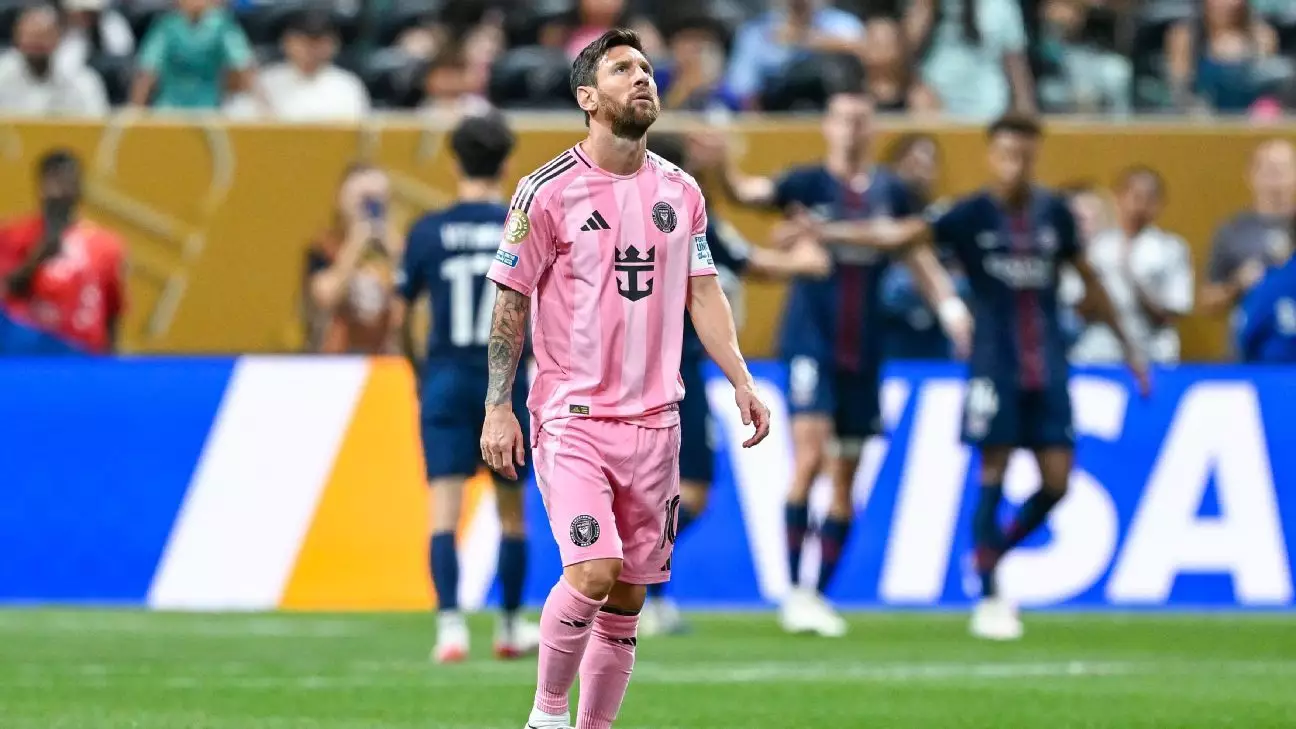In the recent Club World Cup clash at Mercedes-Benz Stadium, Paris Saint-Germain (PSG) emphatically demonstrated why they are the reigning kings of European football. Their 4-0 victory over Inter Miami was not merely a scoreline but a vivid showcase of European tactical precision, athleticism, and depth. Under the guidance of Luis Enrique, PSG displayed a footballing blend that marries high-press intensity with clinical execution. Within minutes, their dominance was unquestionable—forcing repeated saves from Inter’s goalkeeper and breaking the deadlock through a well-crafted free kick sequence. It was a reminder that Champions League champions operate at a level currently unmatched by Major League Soccer (MLS) clubs.
PSG’s 19 shots, nine on target, reflects not just dominance but relentless pressure, a type of gameplay refined through years competing against the world’s elite. Their attacking arsenal, featuring a perfectly harmonized ensemble, effectively exploited Inter Miami’s limited defensive resources. Even Lionel Messi, the iconic talisman of Inter Miami, could not alter the outcome. While Messi’s magic often tips the scales in tighter contests, this match underscored a harsh truth: individual brilliance rarely overcomes systemic and personnel disparities on such a grand stage.
The Structural Inequities Facing MLS Teams
Inter Miami’s defeat throws open a larger discourse on the structural challenges facing MLS teams as they attempt to compete internationally. Both former coach Gerardo “Tata” Martino and current manager Javier Mascherano have voiced concerns about the restrictive roster and salary regulations MLS teams grapple with. These rules, which aim to foster parity domestically, inadvertently hamstring MLS clubs when facing top-tier opposition with deep, flexible squads unhindered by similar restrictions. Miami’s dependence on a handful of high-profile stars—Messi, Luis Suárez, Jordi Alba, and Sergio Busquets—highlights this imbalance.
Beneath these marquee lights lies a supporting cast constrained by league-imposed limits on transfers and salary. This imbalanced squad depth was painfully evident during the PSG game. Injuries to academy graduates like Noah Allen forced less-experienced players into hot water, struggling to maintain composure against a world-class opponent. A crucial own goal and disciplinary issues illuminated the gap in readiness and quality between MLS fringe players and their European counterparts.
Inter Miami co-owner Jorge Mas’s comments articulate the crux of the problem: it’s not just about the starting XI but the impact of substitutes. When teams like PSG can bring on high-caliber replacements without a noticeable dip in quality, MLS teams must rely on less seasoned players, diminishing their competitiveness in knockout stages and high-stakes encounters.
Inter Miami’s Unforgettable Rise Despite the Scoreline
However, to judge Inter Miami solely through their failure against PSG does a disservice to their remarkable rise. Entering only their sixth season, Miami has rapidly evolved from an expansion team to a formidable force within MLS, clinching the 2024 Supporters’ Shield with a record points tally. Their performance in the Club World Cup, especially their historic victory over FC Porto and draws with Brazilian and Egyptian powerhouses, was a statement of intent and progress for MLS on the global stage.
More than their results, Inter Miami’s youthful squad gained invaluable exposure competing against the world’s best, learning in real-time what it takes to reach elite standards. Players nurtured through Miami’s academy such as Benjamin Cremaschi and Ian Fray were cast onto football’s grandest international stage for the first time, gaining critical experience. The presence of legends like Messi and Busquets also creates an environment conducive to growth, mentoring, and raising professionalism across the squad.
The Way Forward: Growth Fueled by Reality
Inter Miami’s story is one of ambition confronting reality, but ambition that refuses to be diminished. This tournament has laid bare the chasm that still separates many MLS clubs from powerhouse European teams in terms of quality and depth, but it has also illuminated a pathway beyond it. The lessons learned—from tactical discipline, physical demands, and squad management—offer a blueprint for sustainable growth.
Alba’s praise for PSG’s demanding style under Luis Enrique, emphasizing work rate and commitment as prerequisites to success, should resonate loudly with MLS teams. Talent alone won’t suffice; blending youthful energy with rigorous preparation and strategic depth is key for MLS clubs aspiring to international success. Inter Miami now holds a trove of vivid experiences that extend far deeper than the scoreboard suggests.
Rather than despair in defeat, Inter Miami’s journey highlights the essential truth of global football: success is born not just from moments of brilliance, but from the arduous process of evolving through tough lessons and applying them consistently. The MLS may not yet rival Europe’s elite in resources or star power, but with thoughtful reforms and continued exposure to top-tier competition, clubs like Inter Miami could become genuine contenders on the world stage within a generation.

